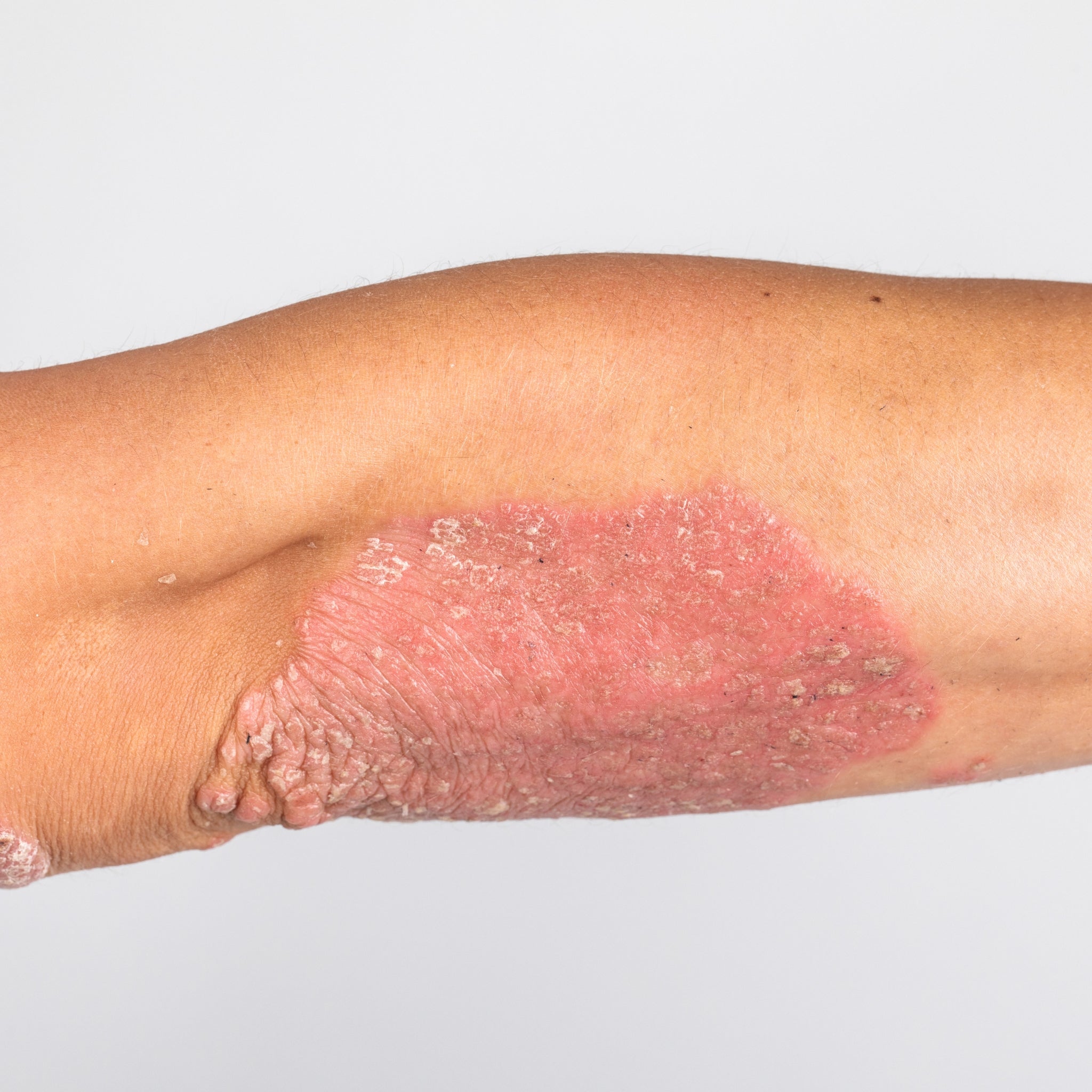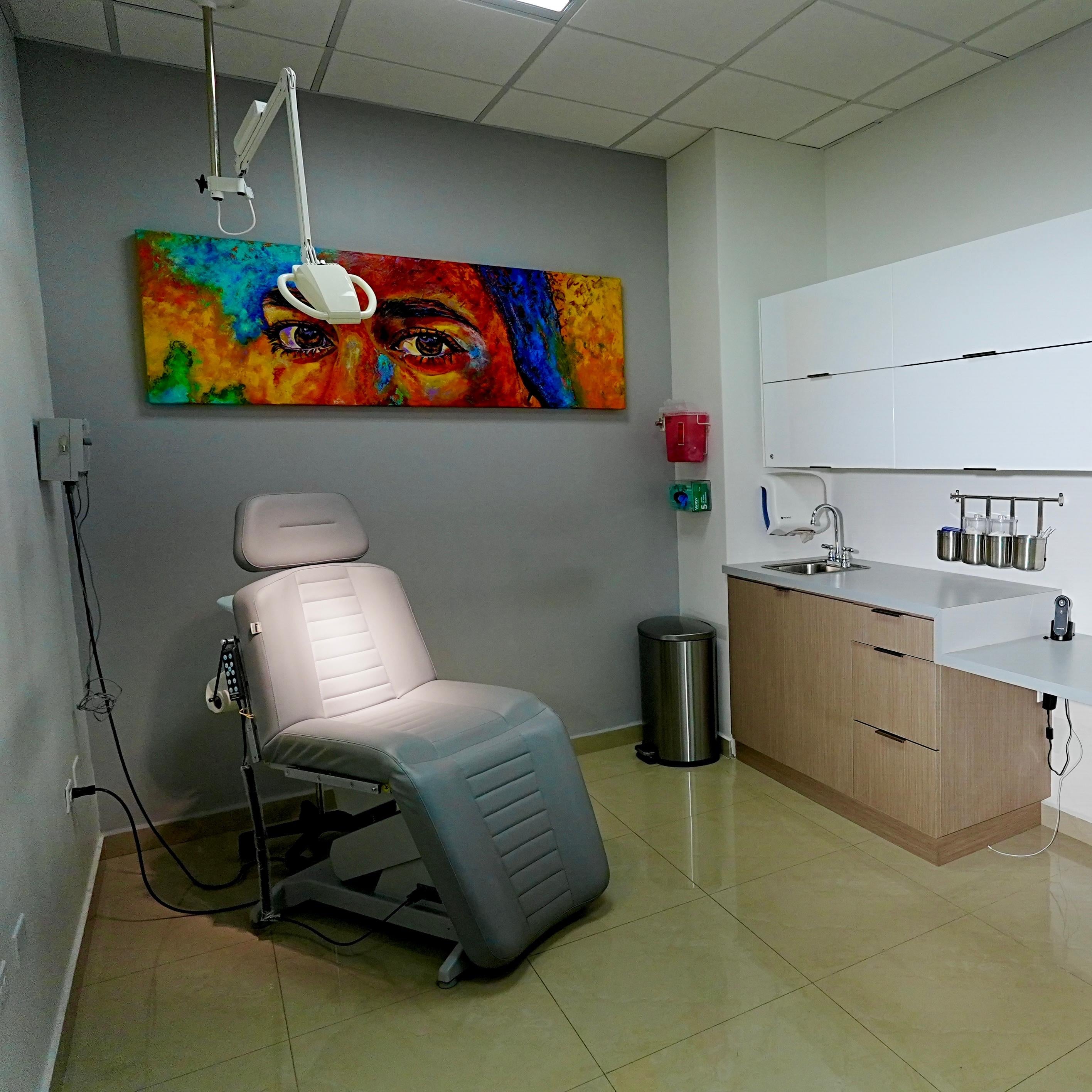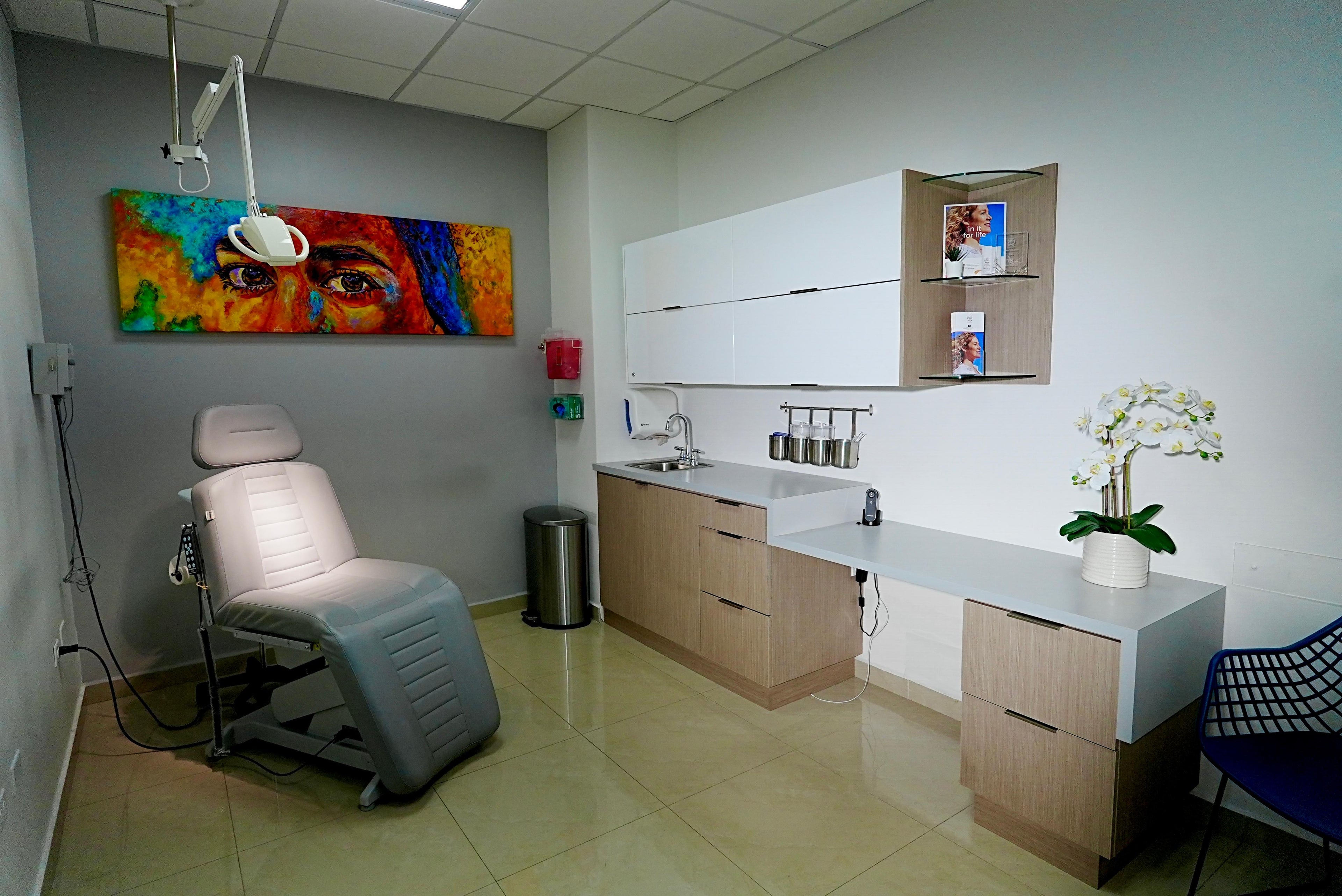Psoriasis
Please note: This service is not available online. It is only offered in-person at our office. Schedule your appointment to experience expert care.
Psoriasis
Psoriasis is a chronic, inflammatory autoimmune disease that affects the skin. It causes skin cells to grow at an accelerated rate, leading to the rapid buildup of thick, scaly patches. While these patches most commonly appear on the elbows, knees, and scalp, they can develop on any part of the body.
Types of Psoriasis:
- Plaque Psoriasis: The most common form, characterized by raised, red patches covered with silvery-white scales.
- Guttate Psoriasis: Often triggered by a bacterial infection (like strep throat), it appears as small, drop-shaped lesions.
- Inverse Psoriasis: Affects skin folds, such as the armpits, groin, and under the breasts, causing smooth, red, inflamed patches.
- Pustular Psoriasis: Characterized by white, pus-filled blisters (pustules).
- Erythrodermic Psoriasis: A severe form that affects most of the body, causing widespread redness and shedding of skin.
- Psoriatic Arthritis: A form of arthritis that affects some people with psoriasis, causing joint pain, stiffness, and swelling.
Symptoms:
- Raised, red patches of skin (plaques)
- Silvery-white scales
- Itching (pruritus)
- Dry, cracked skin that may bleed
- Thickened, pitted, or ridged nails
- Swollen and stiff joints (in psoriatic arthritis)
- Burning sensation
- Soreness
Triggers:
- Stress
- Infections (especially strep throat)
- Skin injuries (cuts, scrapes, sunburns)
- Certain medications
- Cold, dry weather
- Smoking
- Heavy alcohol consumption
Treatment and Management:
- Topical Treatments: Corticosteroids, vitamin D analogs, retinoids, calcineurin inhibitors.
- Light Therapy (Phototherapy): Exposure to ultraviolet (UV) light.
- Systemic Medications: Oral or injectable medications that work throughout the body (e.g., methotrexate, cyclosporine, biologics).
- Lifestyle Changes: Moisturizing regularly, managing stress, avoiding triggers.
Important Considerations:
- Psoriasis is not contagious.
- It is a chronic condition with periods of flare-ups and remission.
- Treatment focuses on managing symptoms and improving quality of life.
- A dermatologist can diagnose and create a personalized treatment plan.

How to Book This Service
Our professional dermatology services are provided exclusively in our Guaynabo office. Schedule your appointment today or contact us to learn more about how we can help you.
VISIT US
Professional Hospital, 9 Las Cumbres Ave, Suite 15, Guaynabo Puerto Rico 00971, United States
Mon - Thu, 7:45am - 4:45pm
Fri, 8:00am - 2:00pm
Sat - Sun, Closed


CONTACT US
-
EMAIL US
info@dermpr.store -
Call us
787-626-3431 -
Follow us


